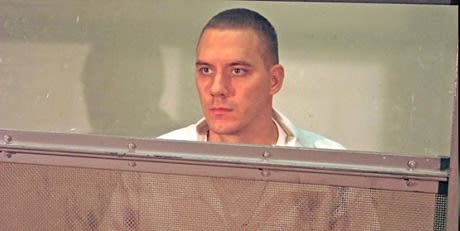Into The Abyss isn't just one of the finest true-crime documentaries ever made, ranking easily with classics like Errol Morris's The Thin Blue Line; it is also one of the greatest films ever made by its director, the incomparable Werner Herzog. His remarkable career easily ranks with the oddest in cinema history, with the constant shifts from documentary to fiction and back being the least of it. After all, this is the man who had a boat hauled over a mountain for the movie Fitzcarraldo, put the cast of Heart of Glass under hypnosis before filming them and ate a shoe for the cameras of documentarian Les Blank. However, its almost parodically grim title notwithstanding, Into The Abyss is Herzog at his soberest and most restrained, minus his distinctive (and much satirized) narrator voice (although he is heard interviewing off-camera.). The subject here takes centre stage, and rightly so, for you can't get more deadly serious than this. The film concerns the repercussions of a senseless, violent crime in the Texas heartland: the murder of a woman, her son and a friend over a Camaro. We meet perpetrators Michael Perry, in his last days on Death Row, and Jason Burkett, who's serving a life sentence. We meet grieving members of the families of victims and perpetrators alike; we meet townspeople who knew the killers. We meet a jailhouse chaplain and Fred Allen, a former captain of the guard on Death Row who decided that he could no longer participate in executions and walked away from his job. Allen's impassioned testimony aside, the film is far from a diatribe against capital punishment. What Herzog offers instead is a portrait of life lived in the bleakest of no-hope situations, a tale of death, a tale of life, as the subtitle says. It's irresistible to compare some of the people who appear here with the eccentrics who populate Herzog's movies, to liken the grinning, sociopathic Perry to Kaspar Hauser or the Grizzly Man, but that wouldn't do justice to the reality of the people onscreen and their suffering. The film has its darkly comic moments (notably in Herzog's interview with Burkett's wife, who married him after his imprisonment and then mysteriously became pregnant by him), but the film conveys a profound feeling of sorrow that you can't shake off. The sole extra is the film's trailer; for once, the rave reviews quoted are not mere hyperbole. This is a masterpiece.
(Mongrel Media)Into the Abyss
Werner Herzog

BY Mark CarpenterPublished Apr 13, 2012



